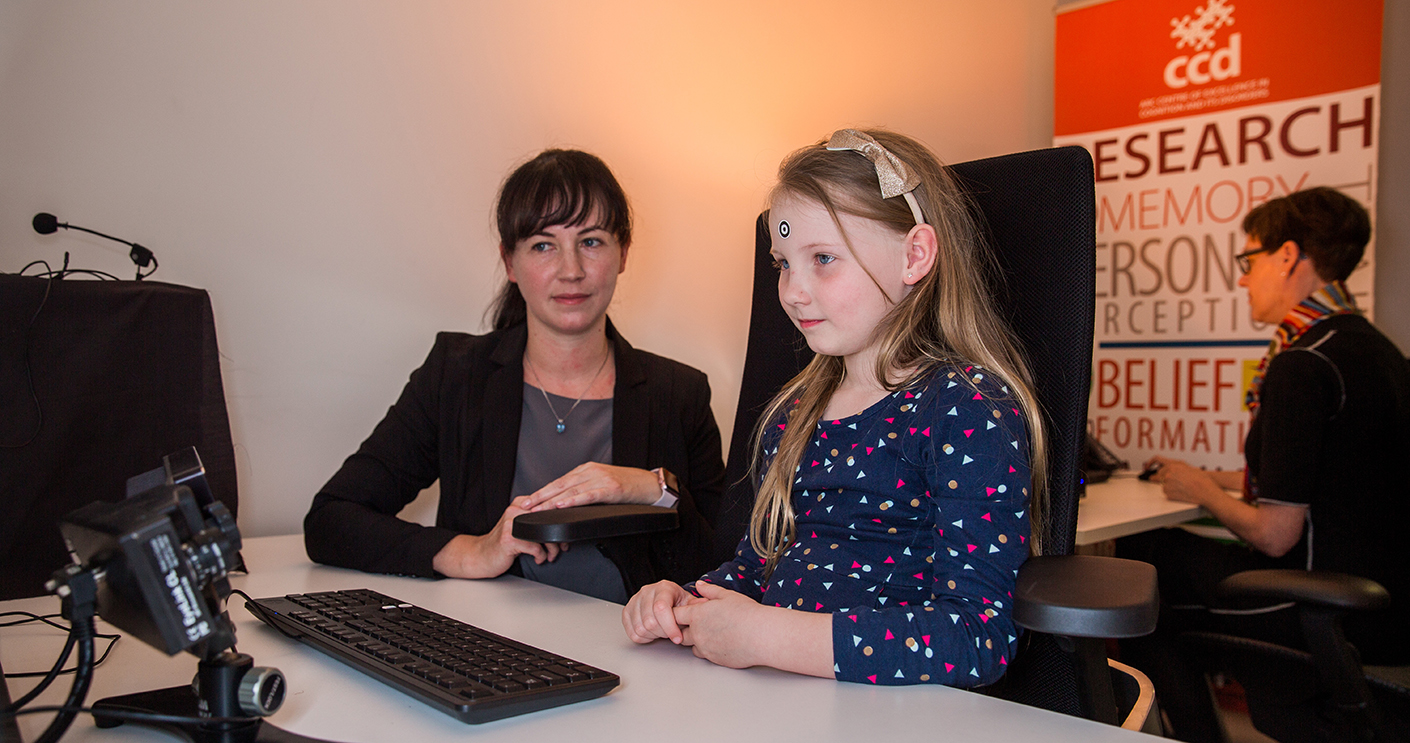Supporting our kids to learn to read is one of the most important roles of being a parent, caregiver or teacher. Last week, a study led by Macquarie researchers revealed new insights into how we can help our children learn to read new words. PhD student Signy Wegener and Distinguished Professor Anne Castles discuss their findings.
Helping children learn to read can be quite a task, requiring many hours of patience, encouragement, and understanding. The more insights we have, the better we are able to understand how to help them develop their reading skills.
Using innovative eye-movement monitoring technology, we assessed how easily a child could read a new word. We found that when children have heard a new word in its spoken form, and know how it is pronounced and what it means, they are then able to read this word with more ease when they see it for the first time.
The findings indicate that by the time children get to the stage where they ‘read’ spoken words for the first time, they have already formed expectations about how the written form of these words should look, even before seeing them in print.
The results add more evidence that reading and speaking to your kids aids their language development in an array of different ways, including helping them to read new words themselves. It is also important, the results suggest, that teachers include oral vocabulary instruction in the classroom, especially about words that might be unfamiliar, as this will help children to both read and understand those words better when they encounter them in texts.
The findings are the first to provide evidence about how oral vocabulary in children is linked to their ability to learn to read new words, and we are hoping to uncover more insights into child language and literacy development as we continue our research into the future.


 Back to homepage
Back to homepage
Comments
We encourage active and constructive debate through our comments section, but please remain respectful. Your first and last name will be published alongside your comment.
Comments will not be pre-moderated but any comments deemed to be offensive, obscene, intimidating, discriminatory or defamatory will be removed and further action may be taken where such conduct breaches University policy or standards. Please keep in mind that This Week is a public site and comments should not contain information that is confidential or commercial in confidence.